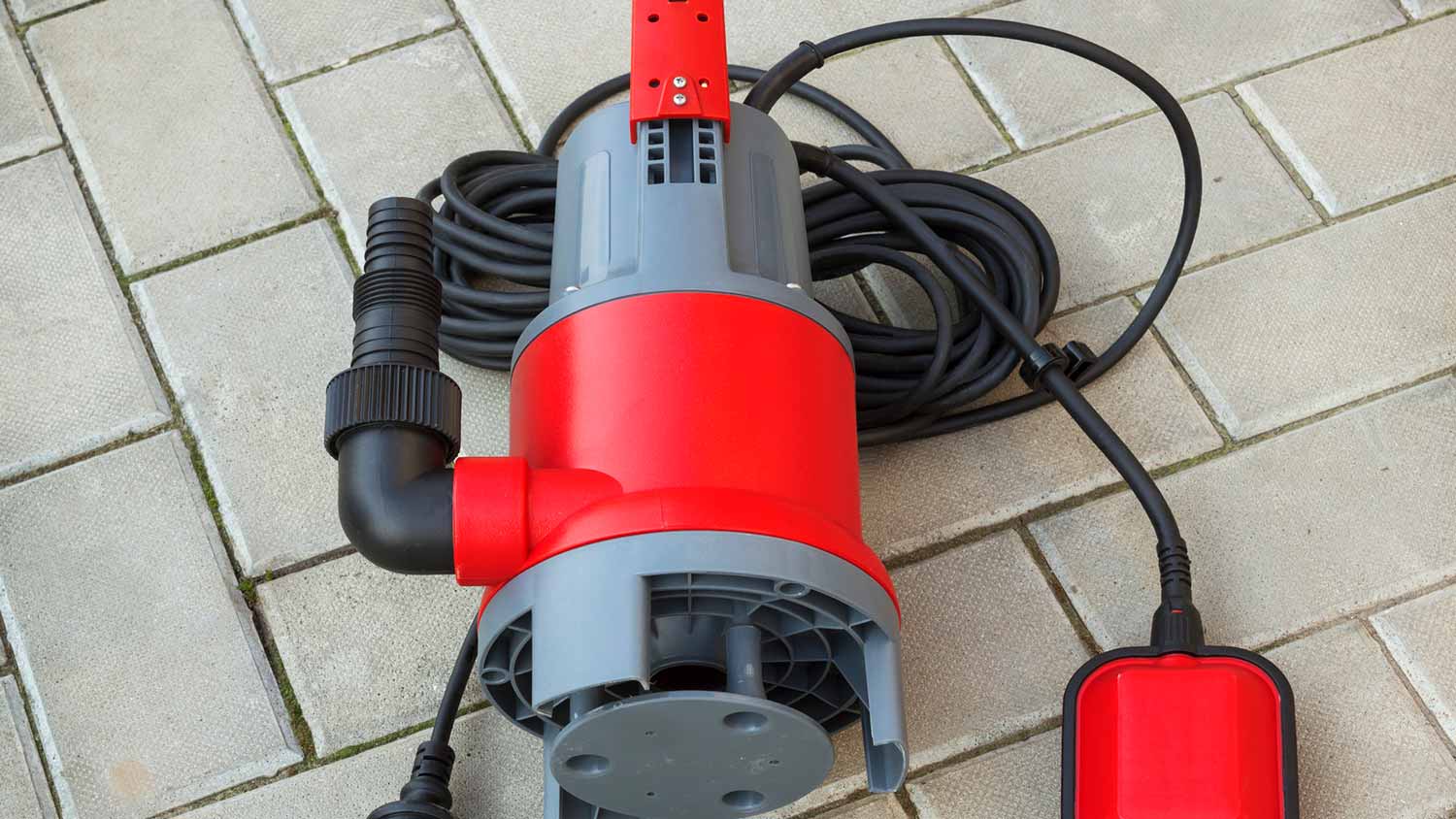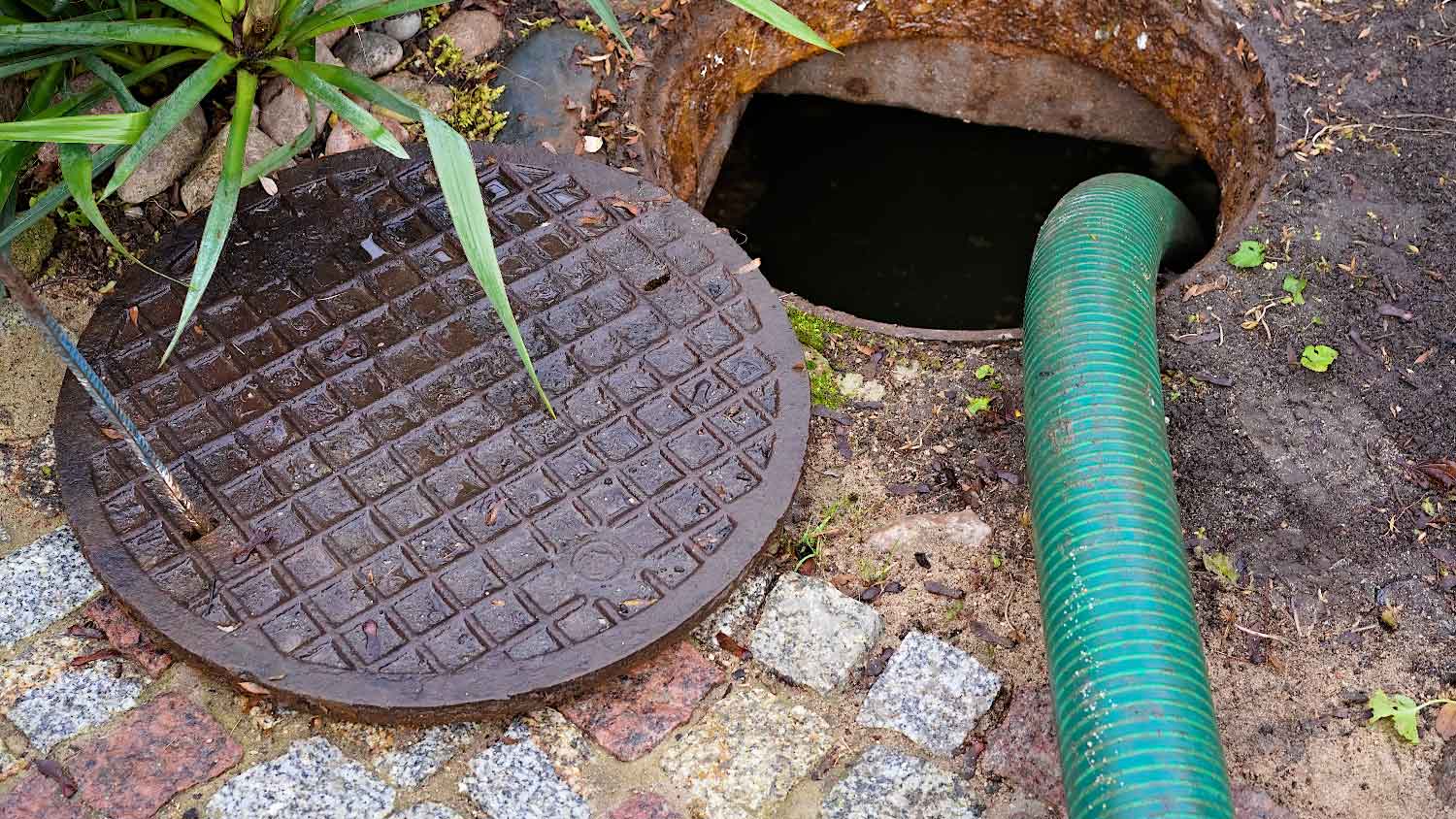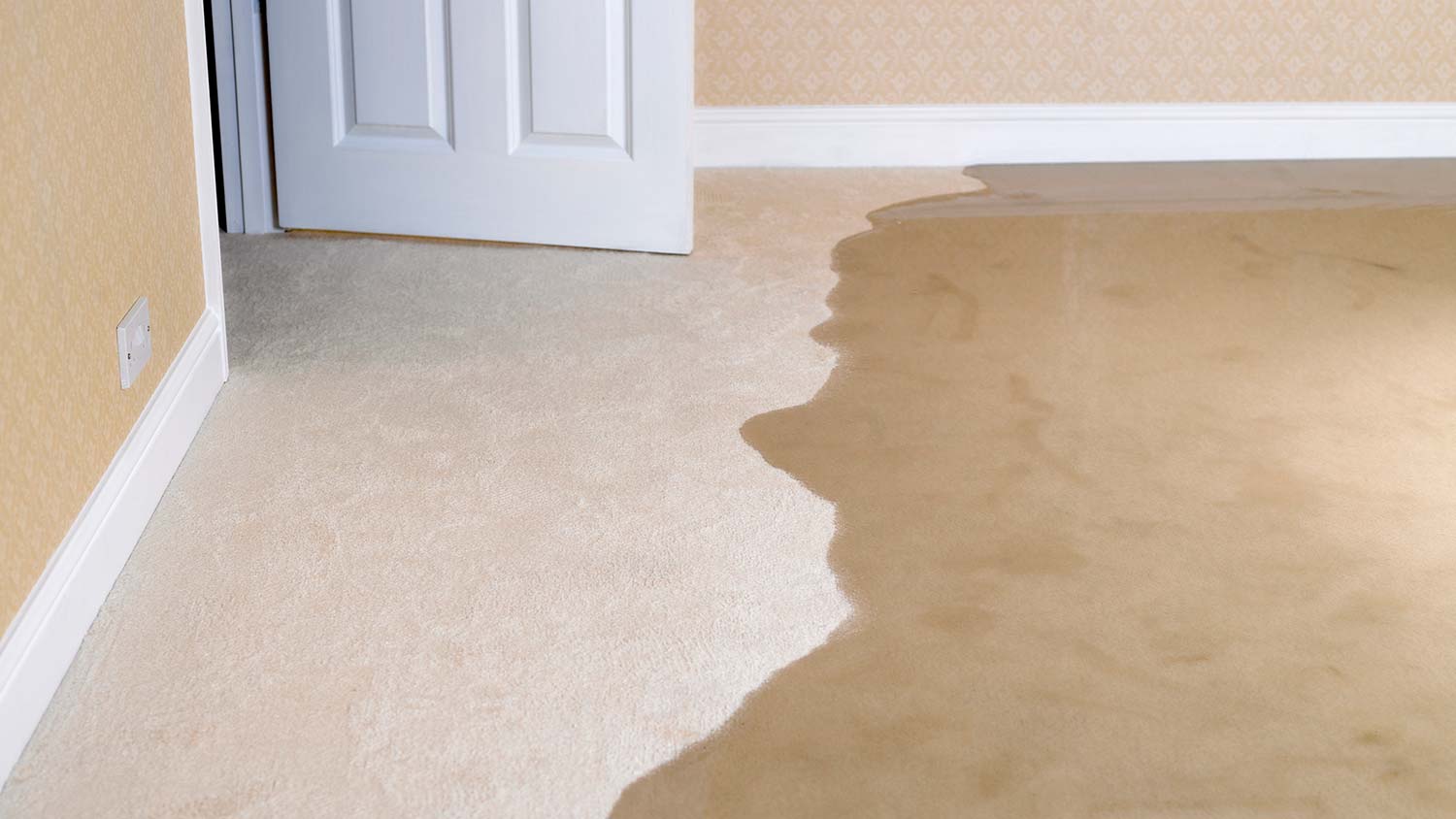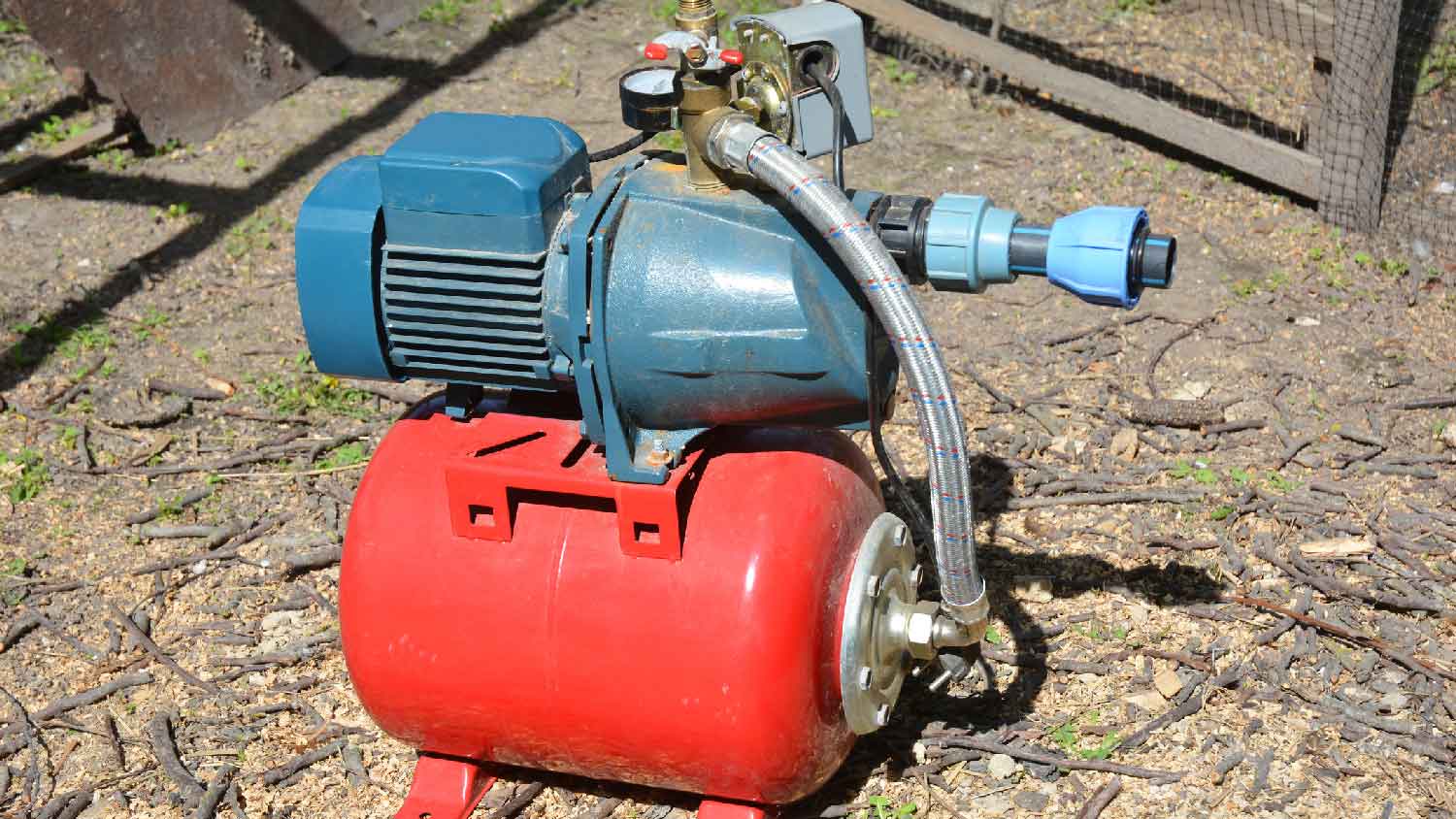
Your solar well pump cost depends on your well depth and flow rate. Explore these cost factors and more to budget for an eco-friendly pump.
Get pumped about your home’s water solutions


When it comes to home building and renovations, understanding the different types of water pumps is crucial. Whether you’re dealing with water drainage, sewage disposal, or providing fresh water from a well, the right pump can make all the difference. Let’s explore various water pump types, their benefits and drawbacks, and how to select the best pump for your needs.

A sump pump removes water that accumulates in a sump basin located in the basement or crawl space of a home. Sump pumps are essential for preventing flooding, especially in areas that are prone to heavy rainfall or groundwater issues. Sump pumps operate by automatically activating when water levels rise, pumping excess water away from the foundation to protect your home from water damage.
There are three primary types of sump pumps:
Pedestal sump pumps: These pumps have a motor mounted above the sump basin, making them easier to access for maintenance. They are often less expensive but may be less effective for deeper sump basins.
Submersible sump pumps: These pumps are fully submerged in the water, which makes them quieter and more efficient at pumping out water. However, they can be more difficult to maintain since the entire unit is underwater.
Battery backup sump pumps: These pumps provide a secondary option in case of power outages, ensuring your home remains protected during heavy storms when the primary pump may fail.
| Pros | Cons |
|---|---|
| Prevent flooding | Regular maintenance needed |
| Protect foundation | May fail in storms |
| Various types | Costly to install |
Best for: Homes with finished basements

Sewage ejector pumps are designed to move wastewater from your home to the municipal sewer system or a septic system. These pumps are particularly useful for homes that have lower levels, such as basements, where gravity cannot assist in waste removal.
| Pros | Cons |
|---|---|
| Can handle solids | Noisy operation |
| Prevent sewage backup | Regular maintenance |
| Great for homes in remote areas | Costly to install |
Best for: Homes that are not connected to municipal sewage systems and homes with basement or below-grade bathrooms

Utility pumps are versatile and can be used for many applications, such as draining flooded areas, emptying hot tubs, or providing water for lawn irrigation. They’re portable and easy to operate, making them ideal for temporary use.
Utility pumps can be used for:
Draining flooded basements
Draining water heaters
Water removal from pools and hot tubs
Irrigation systems and gardening
| Pros | Cons |
|---|---|
| Highly versatile and portable | No continuous use |
| Affordable | Lower capacity |
| Easy to install | Can’t be used with water containing solids or debris |
Best for: Homes with water heaters and lawn care enthusiasts

Well pumps help homes with wells to get water for both drinking and household use, like lawn irrigation or laundry. These pumps bring water from underground aquifers into your home.
The most common types of well pumps for residential use include:
Submersible well pumps: These pumps are submerged underwater and are efficient at lifting water from deep wells. They are quiet and durable.
Jet pumps: These pumps are used for shallow wells and can draw water using suction. They’re easier to maintain but may struggle with deeper water sources.
| Pros | Cons |
|---|---|
| Energy efficient | Need annual water testing |
| Low-cost water supply | Costly to install |
| Can use for irrigation | Varied performance |
Best for: Homes that are not connected to city water
In addition to the pumps mentioned above, several other water pumps serve specific purposes in our homes:
Pool pumps: Circulate water in swimming pools for filtration and cleaning
Water feature pumps: Designed for fountains, ponds, and waterfalls to ensure proper water flow and aeration
Sprinkler system pumps: Provide adequate pressure for irrigation systems in gardens and lawns
Condensate pumps: Remove condensate from HVAC systems to prevent overflow and maintain efficiency
Hot water recirculating pumps: Ensure hot water is readily available at faucets by circulating water through the system
When you’re looking into different types of water pumps for your home, pump capacity, water pressure needs, pump efficiency, water quality, and the pump’s power source are important to think about. There’s a lot to consider here, so call in a well pump pro near you if it seems overwhelming (you’ll need a pro’s help to install the pump, anyway).
This refers to the pump’s ability to move water within a specific time frame, measured in gallons per minute (GPM). Ensure that the pump’s capacity aligns with your water requirements.
Different applications require varying water pressure levels. Make sure your pump can handle the water pressure you need. Otherwise, it may wear out and need repair or replacement sooner.
Efficiency impacts both performance and energy consumption. Look for pumps designed to maximize water movement while minimizing energy use to save on utility bills.
Consider the properties of the water you’ll be pumping. For instance, if you’re dealing with dirty or contaminated water, choose a pump that can handle solids without clogging.
Water pumps can be powered by electricity, gasoline, or solar energy. Think about which power source is most accessible and cost-friendly for you. If you choose a pump that runs on electricity, make sure you have a battery-powered backup so that you have no interruptions in your water supply.
From average costs to expert advice, get all the answers you need to get your job done.

Your solar well pump cost depends on your well depth and flow rate. Explore these cost factors and more to budget for an eco-friendly pump.

Drilling a well is no small feat. You’ll need to plan for excavating, a pump, and more. This guide will help you estimate and manage your well drilling costs.

Well pumps require electricity to operate and can affect your monthly bill. Learn about the factors that impact the average cost to run a well pump per month.

If your well water has stopped working, there are several reasons why. Here are five common dry-tap causes and how to troubleshoot a solution.

You don’t always need to leave it to the pros to set up your well pump and pressure tank. Follow this guide to learn how to do it yourself.

Explore these simple instructions to learn how to install a submersible well pump safely on your property. It might be easier than you think.